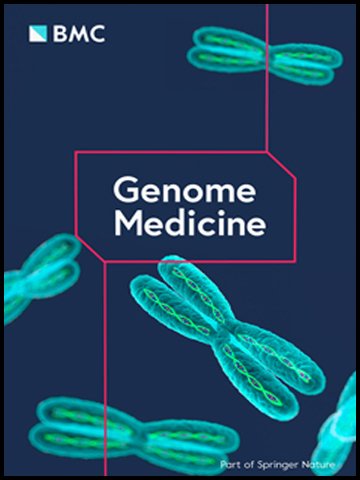PheSeq:贝叶斯深度学习模型,用于增强和解释基因-疾病关联研究
IF 10.4
1区 生物学
Q1 GENETICS & HEREDITY
引用次数: 0
摘要
尽管基因型-表型关联研究层出不穷,但由此产生的关联结果往往缺乏稳健性和解释性。为了应对这些挑战,我们引入了贝叶斯深度学习模型 PheSeq,该模型通过整合和感知表型描述来增强和解释关联研究。通过在阿尔茨海默病、乳腺癌和肺癌的三个案例研究中实施 PheSeq 模型,我们为阿尔茨海默病确定了 1024 个优先基因,为乳腺癌和肺癌分别确定了 818 和 566 个基因。得益于数据融合,这些发现代表了基因疾病关联研究中的中等阳性率、高回忆率和解释能力。本文章由计算机程序翻译,如有差异,请以英文原文为准。
PheSeq, a Bayesian deep learning model to enhance and interpret the gene-disease association studies
Despite the abundance of genotype-phenotype association studies, the resulting association outcomes often lack robustness and interpretations. To address these challenges, we introduce PheSeq, a Bayesian deep learning model that enhances and interprets association studies through the integration and perception of phenotype descriptions. By implementing the PheSeq model in three case studies on Alzheimer’s disease, breast cancer, and lung cancer, we identify 1024 priority genes for Alzheimer’s disease and 818 and 566 genes for breast cancer and lung cancer, respectively. Benefiting from data fusion, these findings represent moderate positive rates, high recall rates, and interpretation in gene-disease association studies.
求助全文
通过发布文献求助,成功后即可免费获取论文全文。
去求助
来源期刊

Genome Medicine
GENETICS & HEREDITY-
CiteScore
20.80
自引率
0.80%
发文量
128
审稿时长
6-12 weeks
期刊介绍:
Genome Medicine is an open access journal that publishes outstanding research applying genetics, genomics, and multi-omics to understand, diagnose, and treat disease. Bridging basic science and clinical research, it covers areas such as cancer genomics, immuno-oncology, immunogenomics, infectious disease, microbiome, neurogenomics, systems medicine, clinical genomics, gene therapies, precision medicine, and clinical trials. The journal publishes original research, methods, software, and reviews to serve authors and promote broad interest and importance in the field.
 求助内容:
求助内容: 应助结果提醒方式:
应助结果提醒方式:


